Freexian Collaborators: Debian Contributions: Upcoming Improvements to Salsa CI, /usr-move, packaging simplemonitor, and more! (by Utkarsh Gupta)
 Contributing to Debian
is part of Freexian s mission. This article
covers the latest achievements of Freexian and their collaborators. All of this
is made possible by organizations subscribing to our
Long Term Support contracts and
consulting services.
Contributing to Debian
is part of Freexian s mission. This article
covers the latest achievements of Freexian and their collaborators. All of this
is made possible by organizations subscribing to our
Long Term Support contracts and
consulting services.
/usr-move, by Helmut Grohne
Much of the work was spent on handling interaction with time time64 transition
and sending patches for mitigating fallout. The set of packages relevant to
debootstrap is mostly converted and the patches for glibc and base-files
have been refined due to feedback from the upload to Ubuntu noble. Beyond this,
he sent patches for all remaining packages that cannot move their files with
dh-sequence-movetousr and packages using dpkg-divert in ways that dumat
would not recognize.
Upcoming improvements to Salsa CI, by Santiago Ruano Rinc n
Last month, Santiago Ruano Rinc n started the work on integrating sbuild into
the Salsa CI pipeline. Initially, Santiago used sbuild with the unshare
chroot mode. However, after discussion with josch, jochensp and helmut (thanks
to them!), it turns out that the unshare mode is not the most suitable for the
pipeline, since the level of isolation it provides is not needed, and some test
suites would fail (eg: krb5). Additionally, one of the requirements of the
build job is the use of ccache, since it is needed by some C/C++ large projects
to reduce the compilation time. In the preliminary work with unshare last
month, it was not possible to make ccache to work.
Finally, Santiago changed the chroot mode, and now has a couple of POC (cf:
1
and 2)
that rely on the schroot and sudo, respectively. And the good news is that
ccache is successfully used by sbuild with schroot!
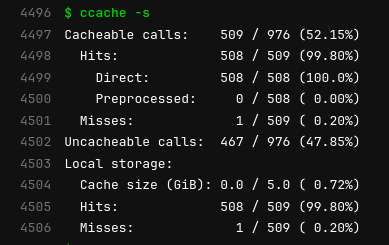 The image here comes from an example of building
The image here comes from an example of building grep. At the end of the
build, ccache -s shows the statistics of the cache that it used, and so a
little more than half of the calls of that job were cacheable. The most
important pieces are in place to finish the integration of sbuild into the
pipeline.
Other than that, Santiago also reviewed the very useful
merge request !346,
made by IOhannes zm lnig to autodetect the release from debian/changelog. As
agreed with IOhannes, Santiago is preparing a merge request to include the
release autodetection use case in the very own Salsa CI s CI.
Packaging simplemonitor, by Carles Pina i Estany
Carles started using simplemonitor in
2017, opened a
WNPP bug in 2022
and started packaging simplemonitor dependencies in October 2023. After
packaging five direct and indirect dependencies, Carles finally uploaded
simplemonitor to unstable in February.
During the packaging of simplemonitor, Carles reported
a few issues
to upstream. Some of these were to make the simplemonitor package build and run
tests reproducibly. A reproducibility issue was reprotest overriding the
timezone, which broke simplemonitor s tests. There have been discussions on
resolving this upstream in simplemonitor and
in reprotest,
too.
Carles also started upgrading or improving some of simplemonitor s dependencies.
Miscellaneous contributions
- Stefano Rivera spent some time doing admin on debian.social infrastructure.
Including dealing with a spike of abuse on the Jitsi server.
- Stefano started to prepare a new release of dh-python, including cleaning out
a lot of old Python 2.x related code. Thanks to Niels Thykier (outside
Freexian) for spear-heading this work.
- DebConf 24 planning is beginning. Stefano discussed venues and finances with
the local team and remotely supported a site-visit by Nattie (outside
Freexian).
- Also in the DebConf 24 context, Santiago took part in discussions and
preparations related to the Content Team.
- A JIT bug was
reported against pypy3 in Debian Bookworm. Stefano bisected the upstream
history to find the patch (it was already resolved upstream) and released an
update to pypy3 in bookworm.
- Enrico participated in /usr-merge discussions with Helmut.
- Colin Watson backported a
python-channels-redis fix to bookworm,
rediscovered while working on
debusine.
- Colin dug into a cluster of celery build failures and tracked the hardest bit
down to a Python 3.12 regression, now
fixed in unstable. celery should be back in testing once the 64-bit time_t
migration is out of the way.
- Thorsten Alteholz uploaded a new upstream version of cpdb-libs. Unfortunately
upstream changed the naming of their release tags, so updating the watch file
was a bit demanding. Anyway this version 2.0 is a huge step towards
introduction of the new Common Print Dialog Backends.
- Helmut send patches for 48 cross build failures.
- Helmut changed debvm to use mkfs.ext4 instead of genext2fs.
- Helmut sent a
debci MR
for improving collector robustness.
- In preparation for DebConf 25, Santiago worked on the Brest Bid.
unshare
chroot mode. However, after discussion with josch, jochensp and helmut (thanks
to them!), it turns out that the unshare mode is not the most suitable for the
pipeline, since the level of isolation it provides is not needed, and some test
suites would fail (eg: krb5). Additionally, one of the requirements of the
build job is the use of ccache, since it is needed by some C/C++ large projects
to reduce the compilation time. In the preliminary work with unshare last
month, it was not possible to make ccache to work.
Finally, Santiago changed the chroot mode, and now has a couple of POC (cf:
1
and 2)
that rely on the schroot and sudo, respectively. And the good news is that
ccache is successfully used by sbuild with schroot!
 The image here comes from an example of building
The image here comes from an example of building grep. At the end of the
build, ccache -s shows the statistics of the cache that it used, and so a
little more than half of the calls of that job were cacheable. The most
important pieces are in place to finish the integration of sbuild into the
pipeline.
Other than that, Santiago also reviewed the very useful
merge request !346,
made by IOhannes zm lnig to autodetect the release from debian/changelog. As
agreed with IOhannes, Santiago is preparing a merge request to include the
release autodetection use case in the very own Salsa CI s CI.
Packaging simplemonitor, by Carles Pina i Estany
Carles started using simplemonitor in
2017, opened a
WNPP bug in 2022
and started packaging simplemonitor dependencies in October 2023. After
packaging five direct and indirect dependencies, Carles finally uploaded
simplemonitor to unstable in February.
During the packaging of simplemonitor, Carles reported
a few issues
to upstream. Some of these were to make the simplemonitor package build and run
tests reproducibly. A reproducibility issue was reprotest overriding the
timezone, which broke simplemonitor s tests. There have been discussions on
resolving this upstream in simplemonitor and
in reprotest,
too.
Carles also started upgrading or improving some of simplemonitor s dependencies.
Miscellaneous contributions
- Stefano Rivera spent some time doing admin on debian.social infrastructure.
Including dealing with a spike of abuse on the Jitsi server.
- Stefano started to prepare a new release of dh-python, including cleaning out
a lot of old Python 2.x related code. Thanks to Niels Thykier (outside
Freexian) for spear-heading this work.
- DebConf 24 planning is beginning. Stefano discussed venues and finances with
the local team and remotely supported a site-visit by Nattie (outside
Freexian).
- Also in the DebConf 24 context, Santiago took part in discussions and
preparations related to the Content Team.
- A JIT bug was
reported against pypy3 in Debian Bookworm. Stefano bisected the upstream
history to find the patch (it was already resolved upstream) and released an
update to pypy3 in bookworm.
- Enrico participated in /usr-merge discussions with Helmut.
- Colin Watson backported a
python-channels-redis fix to bookworm,
rediscovered while working on
debusine.
- Colin dug into a cluster of celery build failures and tracked the hardest bit
down to a Python 3.12 regression, now
fixed in unstable. celery should be back in testing once the 64-bit time_t
migration is out of the way.
- Thorsten Alteholz uploaded a new upstream version of cpdb-libs. Unfortunately
upstream changed the naming of their release tags, so updating the watch file
was a bit demanding. Anyway this version 2.0 is a huge step towards
introduction of the new Common Print Dialog Backends.
- Helmut send patches for 48 cross build failures.
- Helmut changed debvm to use mkfs.ext4 instead of genext2fs.
- Helmut sent a
debci MR
for improving collector robustness.
- In preparation for DebConf 25, Santiago worked on the Brest Bid.
- Stefano Rivera spent some time doing admin on debian.social infrastructure. Including dealing with a spike of abuse on the Jitsi server.
- Stefano started to prepare a new release of dh-python, including cleaning out a lot of old Python 2.x related code. Thanks to Niels Thykier (outside Freexian) for spear-heading this work.
- DebConf 24 planning is beginning. Stefano discussed venues and finances with the local team and remotely supported a site-visit by Nattie (outside Freexian).
- Also in the DebConf 24 context, Santiago took part in discussions and preparations related to the Content Team.
- A JIT bug was reported against pypy3 in Debian Bookworm. Stefano bisected the upstream history to find the patch (it was already resolved upstream) and released an update to pypy3 in bookworm.
- Enrico participated in /usr-merge discussions with Helmut.
- Colin Watson backported a python-channels-redis fix to bookworm, rediscovered while working on debusine.
- Colin dug into a cluster of celery build failures and tracked the hardest bit down to a Python 3.12 regression, now fixed in unstable. celery should be back in testing once the 64-bit time_t migration is out of the way.
- Thorsten Alteholz uploaded a new upstream version of cpdb-libs. Unfortunately upstream changed the naming of their release tags, so updating the watch file was a bit demanding. Anyway this version 2.0 is a huge step towards introduction of the new Common Print Dialog Backends.
- Helmut send patches for 48 cross build failures.
- Helmut changed debvm to use mkfs.ext4 instead of genext2fs.
- Helmut sent a debci MR for improving collector robustness.
- In preparation for DebConf 25, Santiago worked on the Brest Bid.
 Release 0.6.35 of the
Release 0.6.35 of the  I like using one machine and setup for everything, from serious development work to hobby projects to managing my finances. This is very convenient, as often the lines between these are blurred. But it is also scary if I think of the large number of people who I have to trust to not want to extract all my personal data. Whenever I run a
I like using one machine and setup for everything, from serious development work to hobby projects to managing my finances. This is very convenient, as often the lines between these are blurred. But it is also scary if I think of the large number of people who I have to trust to not want to extract all my personal data. Whenever I run a 












 The key idea of
The key idea of 
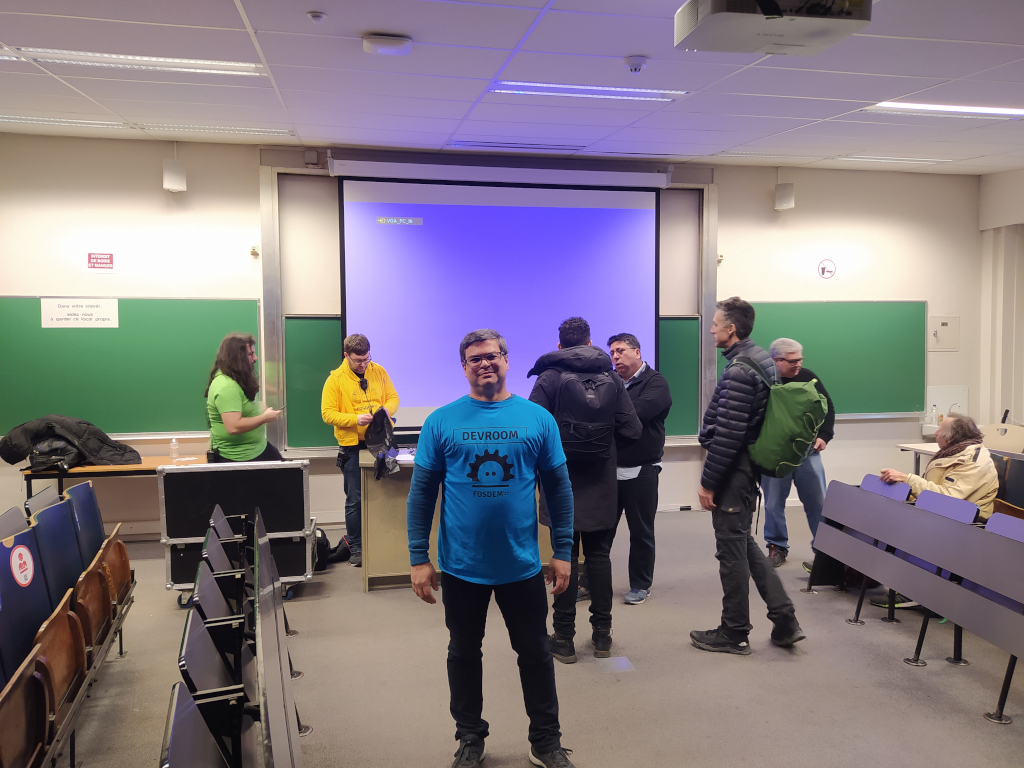 The talks held in the room were these below, and in each of them you can watch the recording video.
The talks held in the room were these below, and in each of them you can watch the recording video.
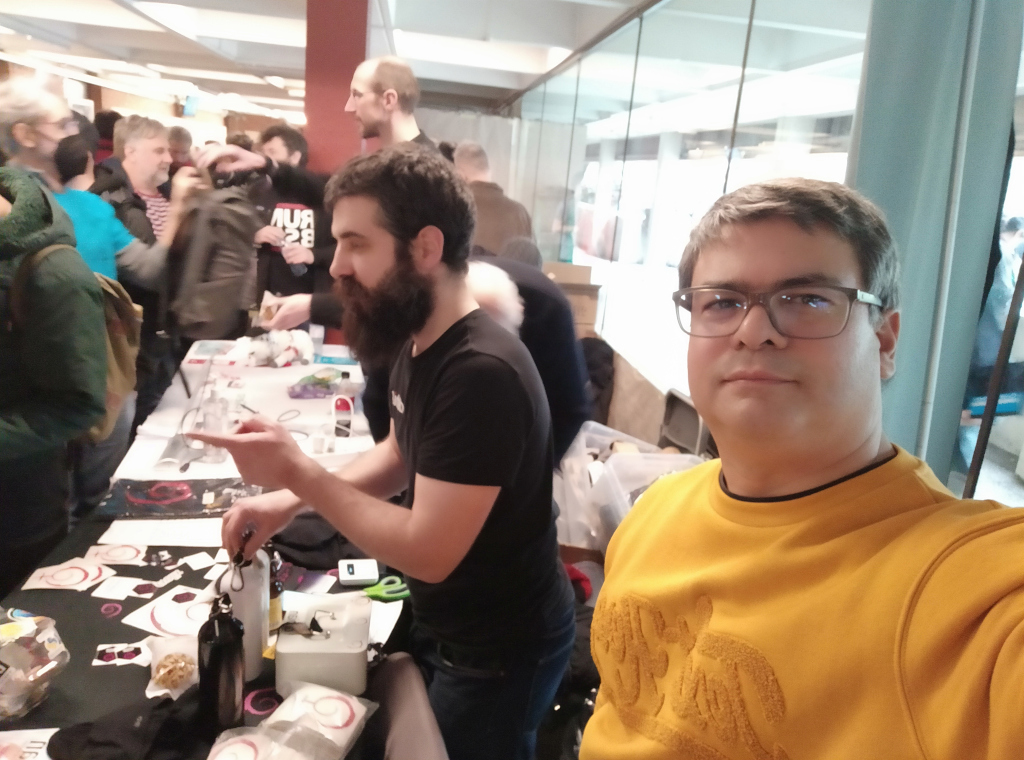
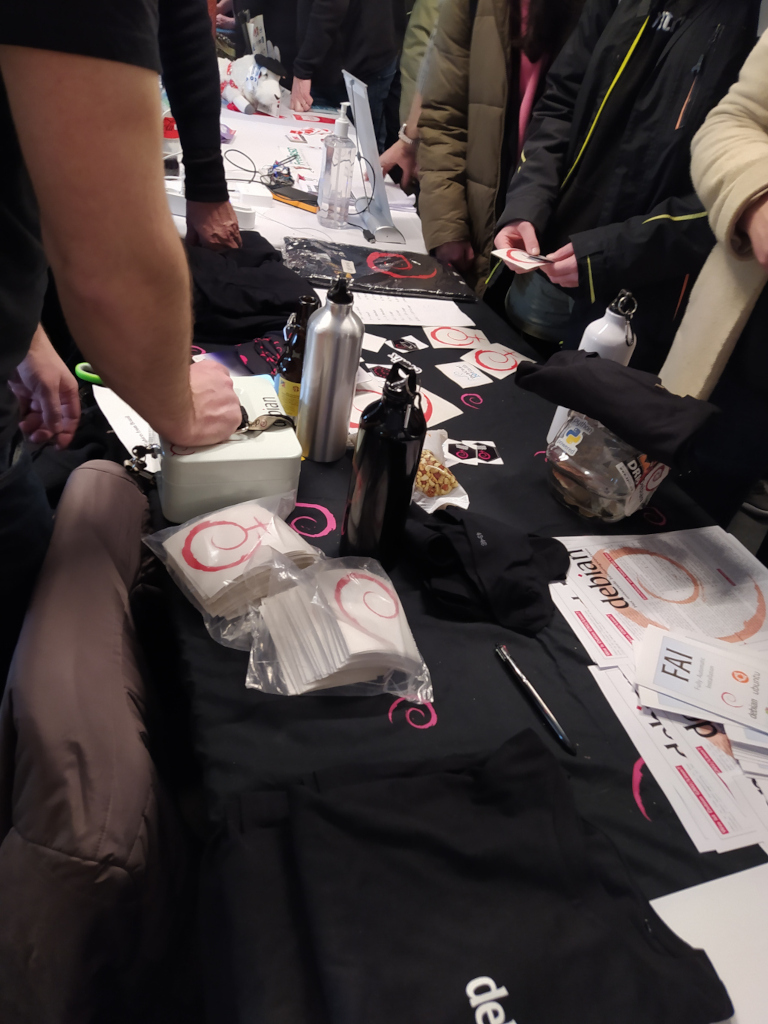
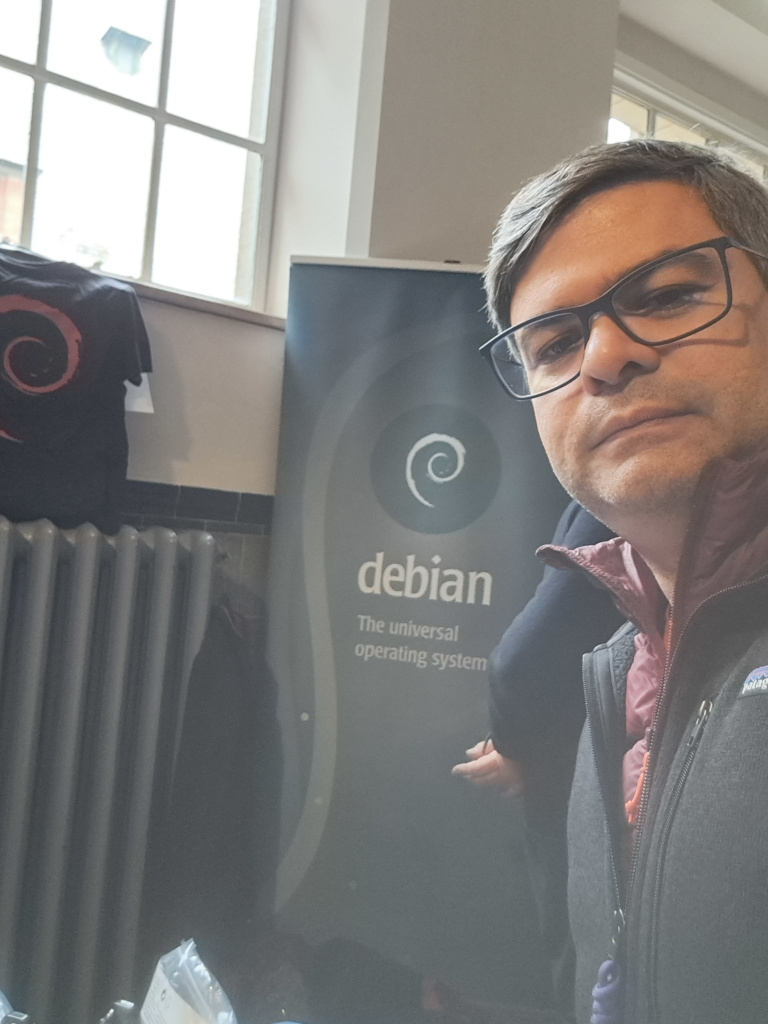
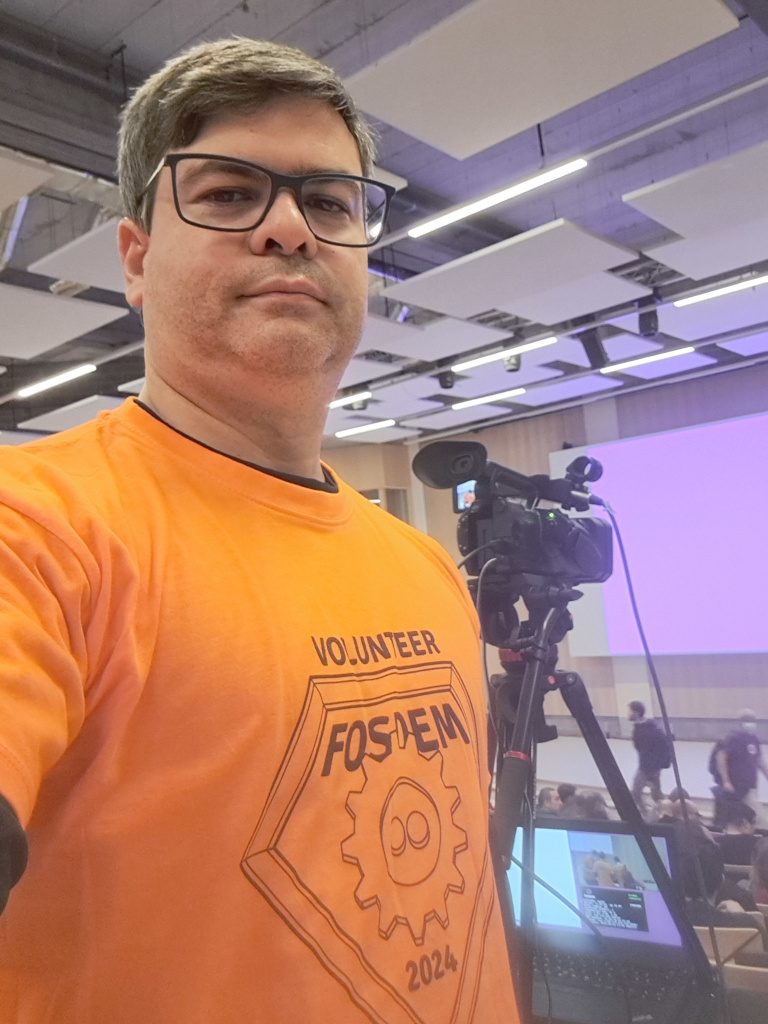
 As there has been an increase in the number of proposals received, I believe that interest in the translations devroom is growing. So I intend to send the devroom proposal to FOSDEM 2025, and if it is accepted, wait for the future Debian Leader to approve helping me with the flight tickets again. We ll see.
As there has been an increase in the number of proposals received, I believe that interest in the translations devroom is growing. So I intend to send the devroom proposal to FOSDEM 2025, and if it is accepted, wait for the future Debian Leader to approve helping me with the flight tickets again. We ll see.
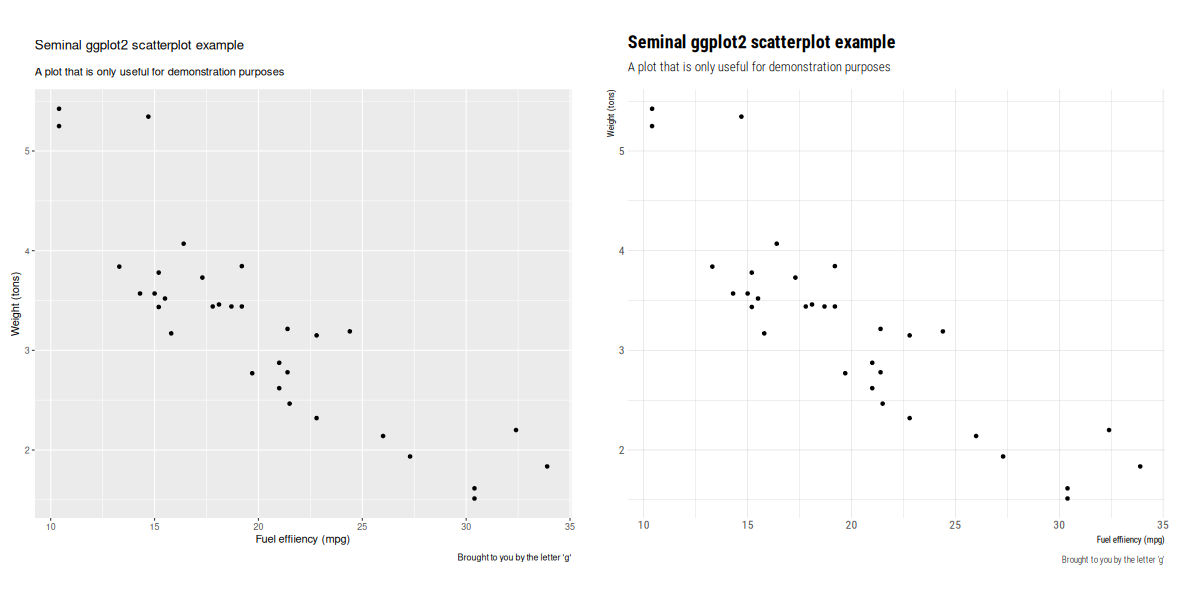 This version mostly just updates to the newest releases of
This version mostly just updates to the newest releases of  Two months into my
Two months into my 

 A short status update what happened last month. Work in progress is marked as WiP:
GNOME Calls
A short status update what happened last month. Work in progress is marked as WiP:
GNOME Calls

 While we couldn t go with 6 on our upcoming LTS release, I do recommend
While we couldn t go with 6 on our upcoming LTS release, I do recommend  Update 28.02.2024 19:45 CET: There is now a blog entry at
Update 28.02.2024 19:45 CET: There is now a blog entry at